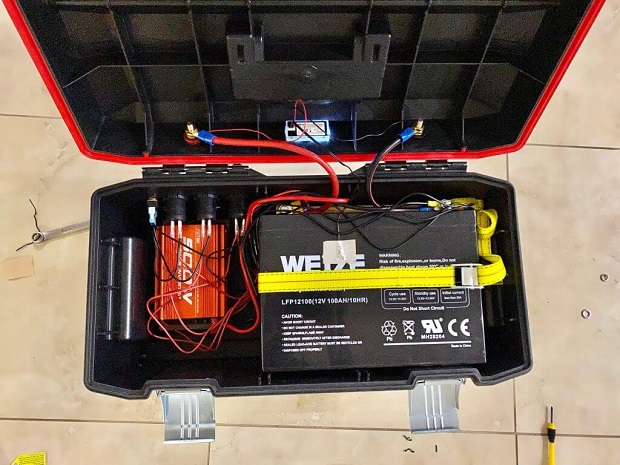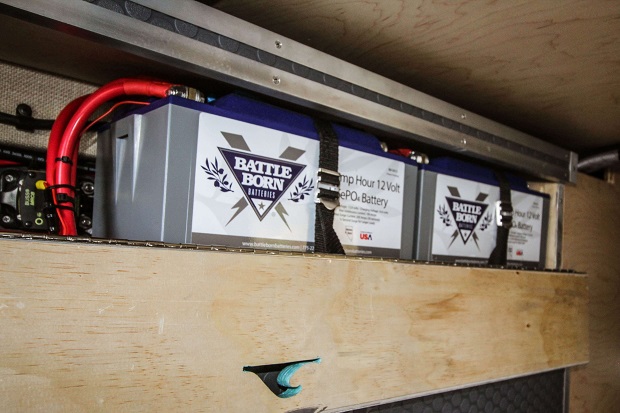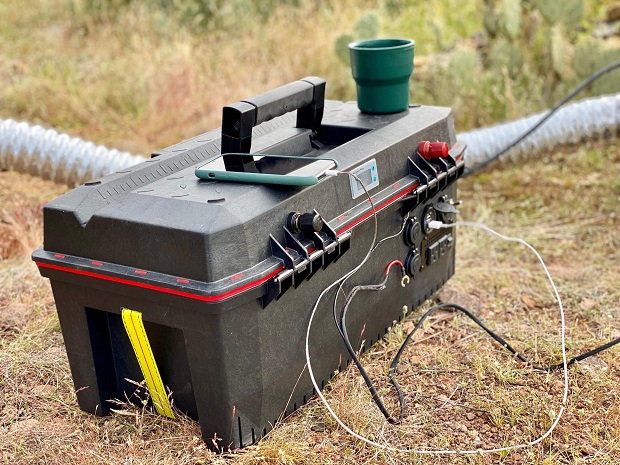If you’re someone who frequently goes camping and needs a couple of things powered, or you’re looking for a power storage solution for your solar system, then you probably need a deep cycle battery. Deep cycle batteries are batteries used in solar, caravan, camping, 4WD and RV applications, as they’re the most efficient and safe power storage units. There are a few different deep cycle battery online types, with the most popular ones being AGM and lithium batteries.
Most Popular Deep Cycle Batteries
For most 4×4, recreational and solar camping applications, AGM batteries are the commonly used ones, simply because they’re the most affordable. If you’re looking for the best performance, however, you should consider lithium batteries, as they’re the best money can buy. Regardless, both types work in a similar fashion – a chemical reaction producing voltage that leads to producing electricity. The difference between a normal and deep cycle battery online is the number of times they can be cycled (discharged and charged back up again). So, while normal batteries are better at delivering a burst of power in a short time period, deep cycle batteries are better at providing constant voltage over long periods of time. And the key reason why AGM and lithium batteries are the most popular for these applications is their light weight and power-producing capabilities.
Plus, the fact that any deep cycle battery can be charged through solar panels make them a great option. However, if you’re solar-charging your batteries, make sure you have a charge controller to ensure proper charging. Also, make sure you use Anderson style plugs that are specifically designed for use with high current 12V circuits. These connectors make for a safe and secure connection. Speaking of safety, ensure the open voltage of the panels is below 18V. Ideally, you solar panel should feature a voltage regulator to stop the charging at 14.6V.
Key Differences Between AGM and Lithium
So should you get an AGM, or lithium battery? Lithium batteries outlast and outperform AGM batteries due to their higher depth of discharge. They can go through six times more charging cycles than their AGM counterparts. choosing the right battery for the application is key, as the type and size will depend on it. The most important factor to consider is the battery capacity, which is measured in amp per hours. Lithium batteries can be discharged down to 0%, whereas AGM and the older, lead-acid batteries shouldn’t be discharged below 50%. For comparison, a 100 amp-hour lithium battery will be similar in power to a 200 amp-hour AGM battery. Lithium deep cycle batteries are more expensive to manufacture, and their price isn’t dropping in the foreseeable future. Lithium is an ore that’s sold on the market just like platinum, gold and silver, and its use in batteries impacts its price greatly.
Lithium batteries operate when their lithium ions move from the anode to the cathode. As aforementioned, they have a high depth of discharge, plus high energy density, no memory effect and a slow charge loss when not in operation. They’re available in a wide range of shapes and sizes, and they’re lighter when compared to other batteries. In fact, they weigh less than 50% of AGM batteries, last 3 to 6 times as much as lead-acid batteries (expected lifespan is 12-20 years), and they don’t risk explosive gasses and acid spills.
Newest Lithium Batteries
The newest, most popular type of deep cycle lithium batteries are LiFePO4 (Lithium Iron Phosphate). They provide even more benefits than conventional lithium batteries, including a higher specific capacity, improved safety, cost performance, charge and discharge rate, superior chemical and thermal stability. These batteries are estimated to provide a cycle life of over 2000 charge cycles.
So why do some deep cycle batteries perform better and last longer than others? Well, because they have different chemistries. For instance, a fully-charged lithium-ion battery will feature about 14.4V, while an AGM battery will have about 13V. So, based on the type of battery you have, you’ll need to charge it differently. Flooded lead-acid batteries demand an equalization charge every now and then to balance the cells. AGM and lithium batteries don’t have this requirement. Additionally, lithium batteries don’t need a maintenance or float stage to keep their charge levels when fully charged.
Care For Your Batteries
To get the most out of the battery, make sure you never over-discharge it. Besides lithium batteries, other deep cycle batteries will last longer if they’re discharged less. For instance, an AGM deep cycle battery will last longer if it’s only discharged to 80% of its total capacity. Furthermore, every battery has a maximum safe discharge level, and going below that level will compromise its life cycle significantly. Next, you have to charge the battery using the right program. This is done to optimise the available capacity and increase its service life. Lastly, the batteries need to be stored properly. Most batteries don’t handle high or low temperatures for long time periods without recharging. But keep in mind, every battery has different demands in this area as well.





